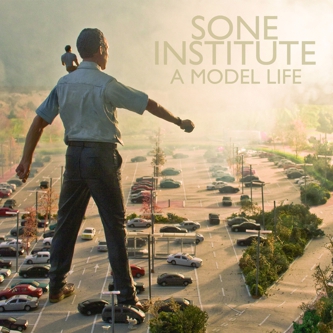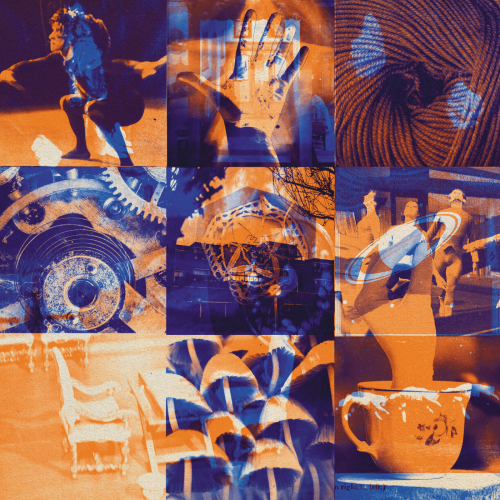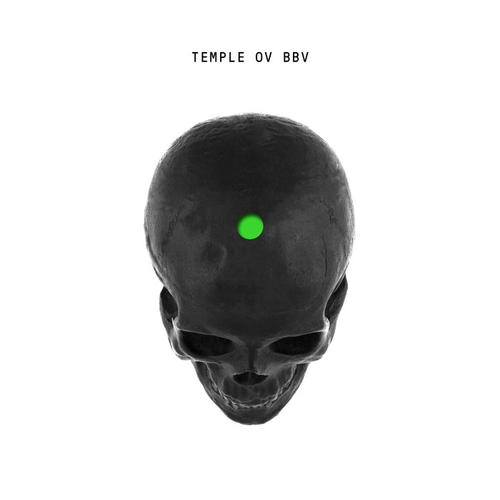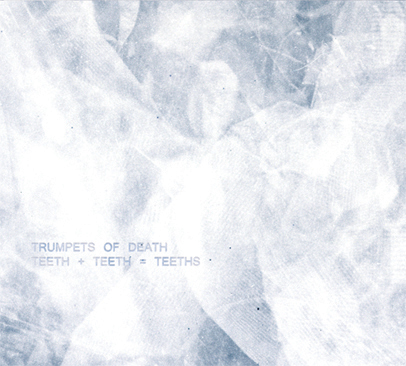 Rougge is a mysterious French composer operating in a modern neo-classical kind of vein, but with an added air of intrigue. The pianist and vocalist’s apparently wordless vocalising sketches shadows and light all over the compelling soundscapes generated by a wonderful string quintet, comprising of two violins, alto, cello and bass. I can’t seem to find anything much about Rougge online, although there is mention of him hailing from Nancy. This is Rougge’s first album since 2016. Beyond that and rather nicely, we are left with just the music to try and win us over, and it certainly manages that.
Rougge is a mysterious French composer operating in a modern neo-classical kind of vein, but with an added air of intrigue. The pianist and vocalist’s apparently wordless vocalising sketches shadows and light all over the compelling soundscapes generated by a wonderful string quintet, comprising of two violins, alto, cello and bass. I can’t seem to find anything much about Rougge online, although there is mention of him hailing from Nancy. This is Rougge’s first album since 2016. Beyond that and rather nicely, we are left with just the music to try and win us over, and it certainly manages that.
Cordes is made up of a eleven tracks, each with a “Fragment” number, the lowest of which is “9” and the highest being “53”. Whether it was originally one enormous movement that was then divided up into these fragments, I can’t tell, but the eleven versions here appear on the album out of numerical order, but still seem to hang well together as a cohesive whole. Opener “Fragment 12” is intriguing, sounding as it does like the band warming up and preparing for the day’s work. It is a quiet and gentle introduction that prepares nicely for ‘Fragment 53’; the piano here is deep and resonant, swept dramatically along in the swirl of the strings.
All is sweeping and majestic, when suddenly this voice appears, part Antony Hegarty / Anohni, part Liz Fraser, that wavers over the top of the dense circle of strings and left-hand piano, lending a high and keening counterpoint. I listened and listened to try and make out words, but somehow even without me managing that, the haunting quality of the voice is still able to express longing and even a gentle touch of despair. In some ways, it leaves you to interpret from the vocals whatever you choose and somehow makes the album more personal. It is an unexpected treat that leads into “Fragment 45”; here the tone is subtler, with delicate minor chord piano and cello evoking a kind of faded grandeur, the voice crooning and gentle. It is the sort of sound that would soundtrack a deserted ballroom at Versailles, looking out across a frosty garden, each blade of grass enclosed in its winter coat as a low pale sun rises illuminating two lovers, still dancing, a night without sleep, swaying in each others’ arms. It is rich and emotional, and guides us into the more upbeat and strident “Fragment 19”. The piano and strings are almost duetting here, and there is an element of a reprise of “53”, the sumptuousness, the constant swirl, the voice holding back, allowing the instruments to gather and propel the track.Cordes tends to move from voice and piano lament to pieces that are a little more uplifting and energetic. There is a touch of Rachel’s in the high piano droplets of “Fragment 9”, the dramatic chord changes giving a sense of constant movement through a monochromatic landscape, a grey sky, the white horizon, the palest of pale as the violins seem to stretch the voice, tempting it higher and higher. In “Fragment 48” there is an interesting feel of the mechanical; the sense of human movement is replaced by the staccato string delivery and the rising and falling piston-like piano that evokes the motion of a train. The parts for the instruments are very simple and layered across the top is the most delightful cello drone.
The other vocal comparison is Jeff Buckley, particularly on “Fragments 22” and “50”. The voice aches and cracks, and at points the slow opening of the throat vibrates like the sound of fingers moving on guitar strings, whereas at other times it seems to flit upwards, unimpeded. Where the voice is aching, the double bass appears like the warm arm around the shoulder of a distraught person, offering solace and enabling reassurance and calm; but where it flies, it is pretty spectacular.I love a mystery and this album is just that. A series of photographs in the booklet show a man sitting at a piano and there are also tiny snaps of the string players, one of whom appears to be smiling, but they aren’t giving much away. On the sleeve itself is a blurry silhouette image of a girl looking out across water, all greys and black and texture, and perhaps that is a good explanation of what this album brings to the listener. Richness, drama, mystery and a sense of uplifting mournfulness that is delicious. I don’t really want to know anything more, just allow myself to be immersed in the music, and I suggest you do too.
-Mr Olivetti-



